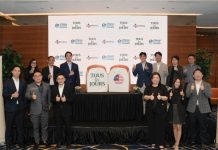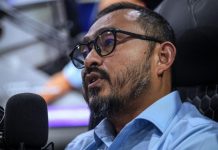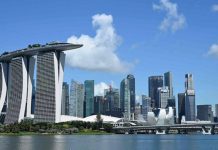Indonesia has made coronavirus vaccination for citizens compulsory and is set to allow the private sector to help inoculate the population to reach herd immunity faster.
A regulation amended earlier this week now means people who are eligible for vaccination but refuse a jab can be penalised.
Sanctions could involve fines, delays or suspension of social aids, or delays or suspension of access to public services.
“(Relevant) ministries, government agencies, local (provincial, city) governments have the authority to enforce the administrative sanctions,” said the amended regulation signed by President Joko Widodo on 9 February. The newly issued regulation allows local governments to draw up details of the penalties.
Indonesia has 34 provinces comprising 500 or so cities and regencies across the archipelago. The capital Jakarta is a special province.
The Jakarta Post reported on Tuesday (Feb 16) that the World Health Organisation believes that making vaccines compulsory is counter-productive, as it would increase what vaccine hesitancy is already present.
Health ministry spokesman Siti Nadia Tarmizi told The Straits Times on Tuesday: “Every nation has a right to make regulations on its respective jurisdiction.”
Dr Nadia could not confirm if Indonesia was the first country to adopt the compulsory stance.
Indonesia seeks to inoculate 181.5 million people, or two-thirds of its more than 270 million population, in 15 months to achieve herd immunity.
It started vaccinating citizens in mid-January, has finished the programme on medical workers and, this week, will start giving jabs to public officials and other risk groups, including market vendors and public-bus drivers.
President Jokowi will witness the start of the vaccination drive at Southeast Asia’s biggest textile market of Tanah Abang on Wednesday, where 55,000 vendors will be inoculated within the next six days.
Meanwhile, the government will also allow a private sector role in the programme, opening up the pay-your-own vaccine, an about-turn from an earlier plan of guaranteeing free vaccines for all the citizens.
The private programme will initially focus on the millions of workers in labour-intensive sectors such as automotive and textile industries, ST understands.
Several conditions will apply for private vaccination, including having state drug firm Bio Farma be the sole distributor and banning companies from competing with the government in procuring vaccines overseas.
Private vaccination operators must also use different brands than those in the free roll-out and inoculations cannot be conducted at any state-run medical facility in case they interfere with the free government-run vaccine programme.
The world’s fourth-most populous country has so far relied on China’s Sinovac vaccines and will start receiving other brands – for the free-vaccine programme – only later this month. The other brands are Britain’s AstraZeneca, Pfizer from the United States and Novavax from the US and Canada.
The private vaccination programme’s brands could include Sinopharm and Anhui from China, Moderna (US), Sputnik (Russia), Johnson & Johnson (US), according to the health ministry.
























